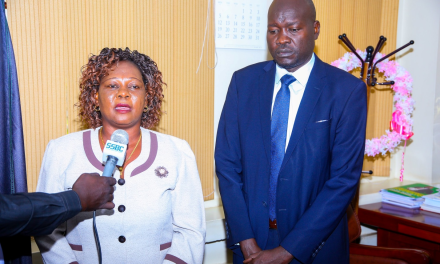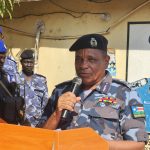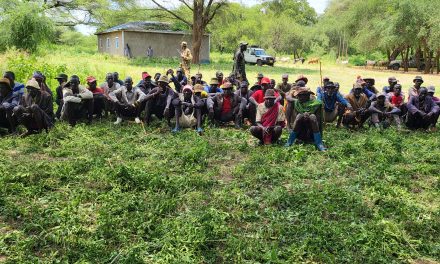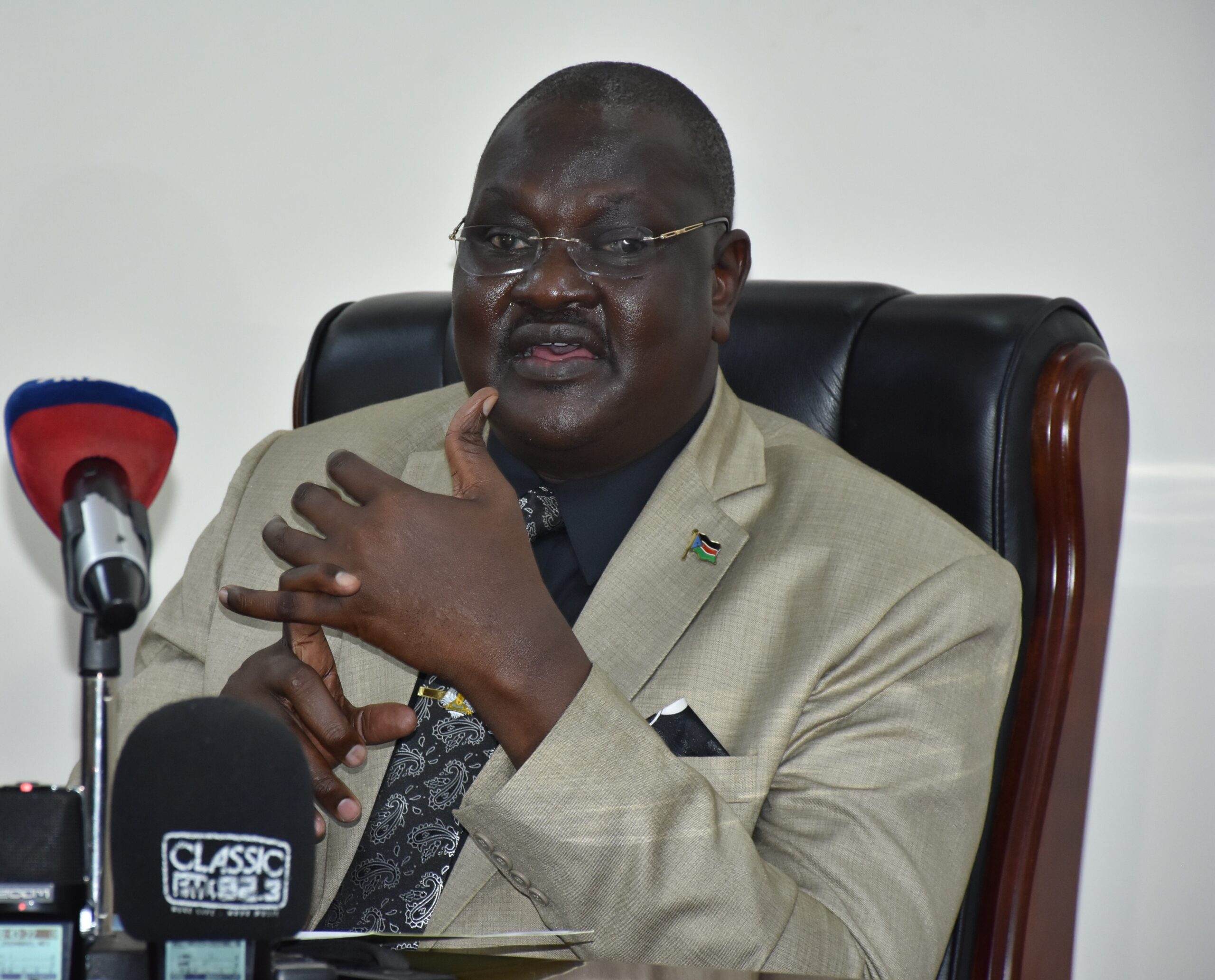
Thousands of people fleeing Sudan violence arrive in South Sudan
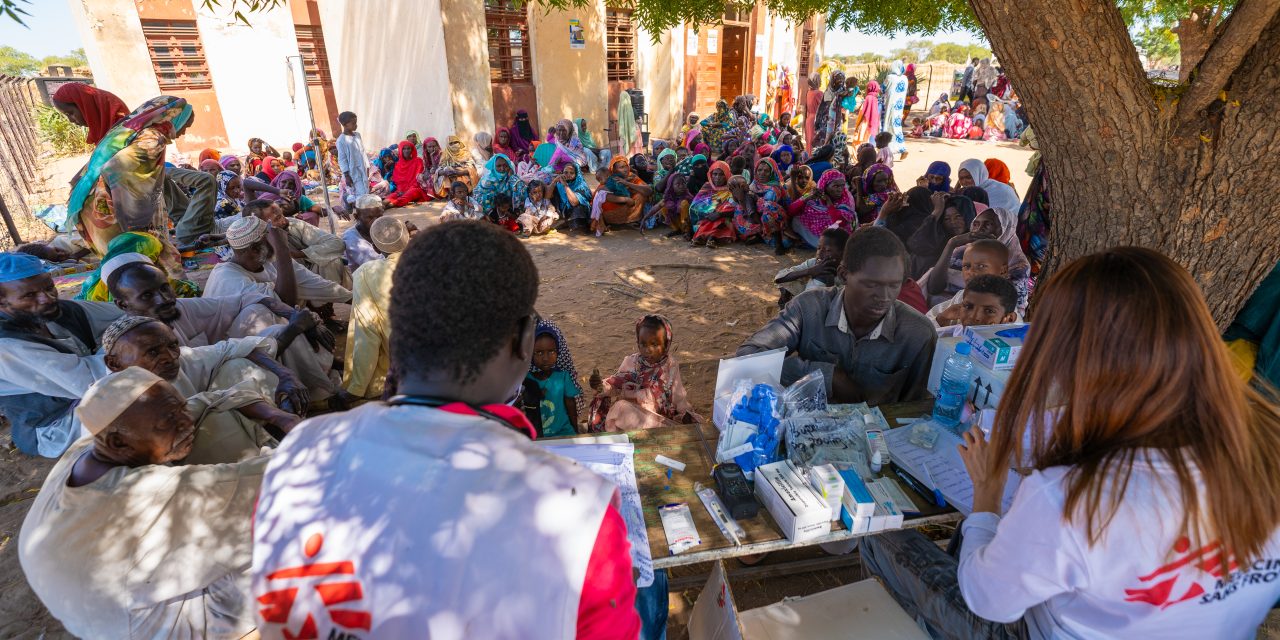
JUBA, 22 December 2024 – As South Sudan receives a massive influx of tens of thousands of
people fleeing the intensified war in Sudan, Médecins Sans Frontières (MSF) is scaling up its
response to the humanitarian crisis in Renk and surrounding informal settlements along the
border. Over the last weeks, the number of recently displaced people has surpassed 80,000,
including hundreds with war wounds. MSF is calling for immediate, coordinated humanitarian
and medical support for displaced people to address critical gaps and prevent further suffering.
Over 5,000 people have crossed into South Sudan each day since the beginning of December, as
the fighting escalates near the border in Sudan’s White Nile, Blue Nil,e and Sennar states. The
influx of people into Renk town and surrounding areas has overwhelmed already scarce
resources, leaving displaced people in crisis.
“We have added 14 tents around the hospital to make space for the war—wounded patients that
are arriving at Renk County Hospital,” says Emanuele Montobbio, MSF emergency coordinator
in Renk. “There is no place for other tents in the surroundings, while patients and their families
keep coming to the hospital. We are working alongside the International Committee of the Red
Cross (ICRC) to treat war-wounded patients and manage the growing influx of critical cases and
the mass casualty response in pre- and post-operative care wards, but the situation is completely
overwhelming and it’s not enough. Just a few dozen people have been treated with surgical
interventions and tetanus vaccinations in recent weeks, while over 100 wounded patients, many
with serious injuries, still await surgery.”
Outside the transit centres within Renk and in informal settlements, thousands are forced to live
under trees or in makeshift shelters, with limited access to food, clean water, healthcare or any
other basic services. The poor water and sanitation conditions are heightening the risk of disease
outbreaks at a time when Renk is already experiencing an ongoing cholera outbreak.
“Immediate action must be taken,” says Roselyn Morales, MSF deputy medical coordinator in
South Sudan, following the team’s assessment on the ground. “Thousands of people are living in
dire conditions under the open sky in informal settlements, facing critical shortages of food,
clean water, shelter and healthcare. We urgently call on both South Sudanese authorities and
international organisations to rapidly scale up their response in Renk and beyond, ensuring that
the essential and lifesaving needs of the affected population are addressed without delay.”
The two Renk transit centres, designed to accommodate a maximum of 8,000 people, are now
sheltering over 17,000. While most returnees and refugees initially entered South Sudan through
the official Joda border crossing, an increasing number are now crossing through informal routes
to the east of Renk. More than 82,000 new arrivals have been recorded in areas including Joda,
Duku Duku, Jerbana, Shemmedi, Gosfami and Atam.
“Our village was in flames,” says Alhida Hammed, who is displaced from Sudan’s Blue Nile
state and is currently under treatment for a gunshot wound at Renk County Hospital. “The houses
were blazing, and everyone was running in different directions. We have been displaced and now
live under a tree. I have no desire to return home. Home is no longer a home—it is filled with
bad memories.”
“I used to only hear about air raids, but recently, it became a reality,” says Bashir Ismail, who is
from Mosmon in Blue Nile state. “I was at the market buying some items when the bombing
started. Something hit me in the chest—it was the most painful experience of my life. I was so
disoriented that it felt like I had lost my memory. The next thing I knew, I was in Renk County
Hospital.”
MSF is deploying mobile clinics to provide primary healthcare in informal settlements in
Goswami, Atam, Jerbana, and Joda, where displaced people are concentrated. On 17 December
alone, MSF teams conducted over 250 medical consultations in Gosfami and referred severely ill
people to Renk County Hospital. We are also launching activities in response to the urgent need
for water and sanitation in Atam and Jerbana. Additionally, relief items have been delivered to
these areas for distribution to 2,500 displaced families. However, despite these efforts, the
response remains insufficient due to the absence of other humanitarian organizations in these
informal settlements, which has left a significant gap in support for the displaced population.


